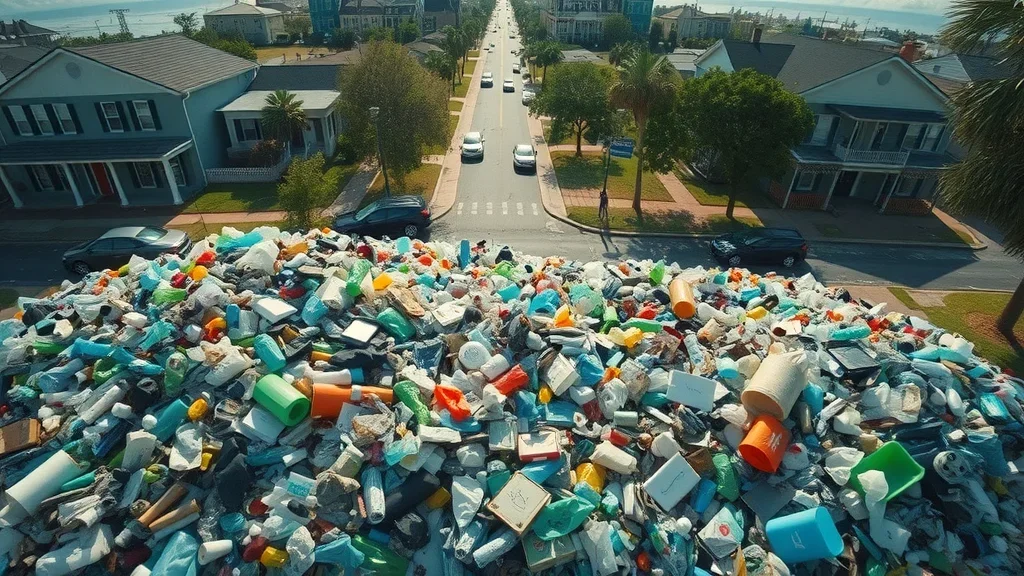
The Emergence of Food-Grade Recycled PP in the Americas
As the global push for sustainability intensifies, the incorporation of food-grade recycled polypropylene (PP) is gaining traction. The NextLoopp initiative, a collaborative effort to promote food-grade recycled PP across continents, is spearheading this movement, albeit with varied levels of success in different regions. While Europe has made swift progress, the Americas are still navigating initial hurdles.
NextLoopp’s Milestones in the Americas
NextLoopp has recently celebrated significant milestones, including the extension of partnerships with major brands like L’Oreal, which enhances cross-border collaboration. Marcio Amazonas, the group’s vice president, highlighted how L’Oreal’s involvement serves as a bridge between European and American markets, facilitating knowledge transfer and the scalability of circular packaging solutions. Furthermore, the initiative welcomed Alcamare International Recycling Group as the first North American recycler to join, a move viewed as catalyzing the transition toward a closed-loop system for PP.
Transforming the Packaging Industry’s Future
The NextLoopp project is focused on achieving high-purity recycled PP that is suitable for direct food contact. This goal was underscored by receiving a Letter of No Objection from the U.S. Food and Drug Administration (FDA), confirming that their recycling process meets the necessary standards. This marks a pivotal moment for food-grade recycled PP, especially considering the current recycling landscape.
According to Edward Kosior, president of NextLoopp Americas, “This validation provides confidence for brand owners to utilize our product in food packaging.” However, the road has been slower in the Americas compared to Europe, primarily due to differing perspectives on recycled material costs among brand owners.
The Economic Discrepancy Between Europe and America
The distinct pace of development raises questions about the economic landscape surrounding recycled materials. Kosior notes that the U.S. market has proven more price-sensitive, leading brands to believe that food-grade recycled PP will exceed the cost of virgin resin. “Over time, as awareness builds and as our collaborative network expands, I believe the perception will shift,” Kosior says, drawing parallels with the early challenges faced in Europe.
Innovation Through Collaboration
A pivotal aspect of NextLoopp’s strategy involves fostering collaboration among all stakeholders—ranging from brand owners to recyclers. By integrating advanced technology, such as AI-assisted sorting, NextLoopp aims to resolve historical recycling challenges, particularly in distinguishing food-grade from non-food-grade PP.
“Our initial work has emphasized not just recycling but understanding what happens at every stage of the supply chain,” explains Kosior. A focus on this holistic view is essential to ensure the effective transformation of waste into a valuable resource.
Bridging the Gap: A Call to Action
Amidst these advancements, Kosior emphasizes the urgency for U.S. recyclers and brand owners to unite in pursuit of innovative, sustainable solutions. With the demand for food-grade recycled PP expected to soar—surpassing 250,000 tons annually—becoming proactive in supporting recycling initiatives is paramount. As the NextLoopp initiative lays down its roots in the Americas, there’s much potential for stakeholders to collaborate and optimize the recycling of polypropylene.
Investing in recycled PP not only promises environmental benefits, such as reducing landfill waste, but can also secure competitive advantages for brands in a market shifting towards eco-conscious consumerism. The time to act is now, as the emerging landscape for food-grade recycled PP in the Americas beckons.
 Add Row
Add Row  Add
Add 




Write A Comment